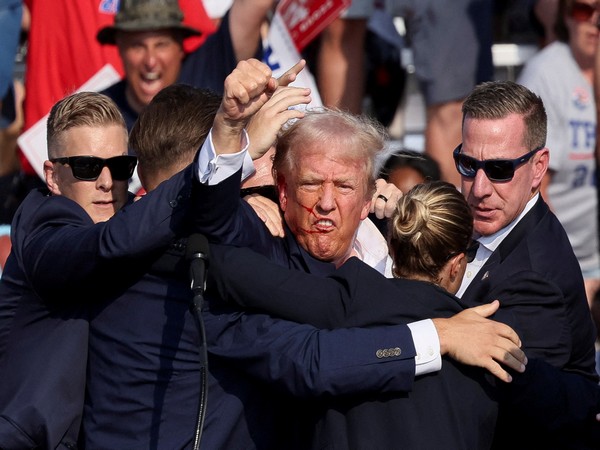Trump's Economic Vision: Promise or Peril?
The Republican National Convention focused on economic issues, with speakers advocating that Donald Trump would address inflation and boost prosperity. However, experts caution that his policies could lead to increased inflation and economic instability. Trump's approach contrasts with Biden's detailed budget plan, raising concerns about the potential impacts on the middle class and national debt.

- Country:
- United States
The first night of the Republican National Convention centered on economic themes on Monday, despite recent events such as the shooting incident at a Pennsylvania rally where former President Donald Trump was injured.
Speakers highlighted Trump's potential to address inflation and revive economic prosperity if he returns to the White House. Virginia Governor Glenn Youngkin expressed a sentiment of lost opportunity in America. However, Trump provided few concrete figures or policy details, relying instead on broad promises to appeal to voters.
Among Trump's economic proposals are tariffs on trading partners, tax-free tips, and a slight reduction in the corporate tax rate. His vision includes defeating inflation, reducing prices, increasing fossil fuel production, and implementing the largest deportation program in U.S. history. Meanwhile, Demoractic leaders and economic experts warn that such ideas could exacerbate inflation, harm the middle class, and swell the national debt.
The Trump campaign declined to clarify economic views, deferring to Trump's public speeches and video clips. In sharp contrast, President Biden has presented a comprehensive 188-page budget plan despite questions about his age and candidacy.
A study by the Peterson Institute indicated that deporting 1.3 million workers would contract the U.S. economy by 2.1%, potentially triggering a recession. Trump's supporters argue his past presidency offers insight into his future actions, while critics suggest he would adopt more extreme measures in a second term.
Some of Trump's plans, like banning taxes on tips, have gained bipartisan support. Businesses favor his regulatory cuts and lower corporate tax rate, although they worry about the impact of his proposed tariffs, which could increase consumer costs and worsen inflation despite his claims to the contrary.
Research suggests Trump's tariffs are more politically strategic than economically beneficial, highlighting risks of higher costs for raw materials and consumer products. Experts urge scrutiny of Trump's economic policies to understand their potential consequences fully.
Economist Kimberly Clausing warned, "I think people will notice when everything gets wildly expensive. This is going to be a huge disaster."
(With inputs from agencies.)
ALSO READ
Pro-Israel Groups Challenge Biden's Anti-Violence Order
Government Eases Income Tax Burden for Middle Class in New Budget
Hunter Biden Accused in U.S. Criminal Tax Case Over Romanian Payments
Republican States Sue Biden Administration Over Health Insurance for DACA Recipients
Federal Appeals Court Blocks Biden's Student Debt Relief Plan










